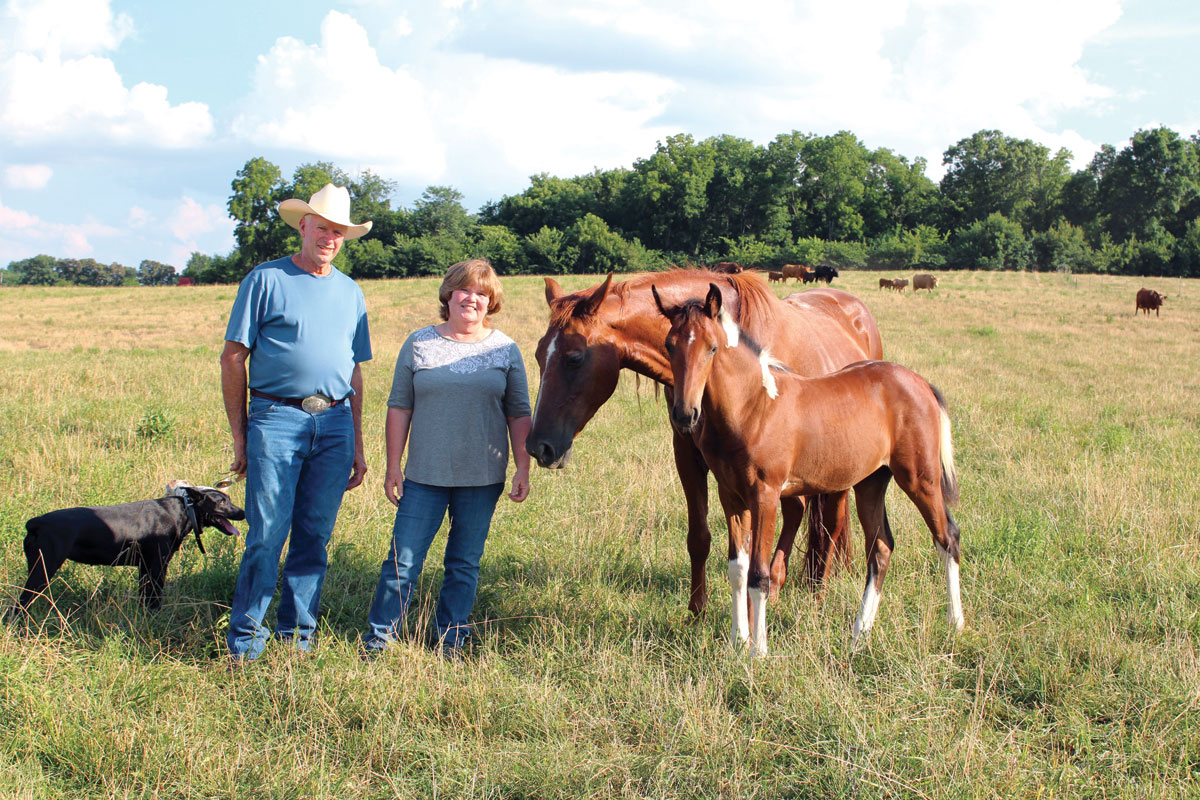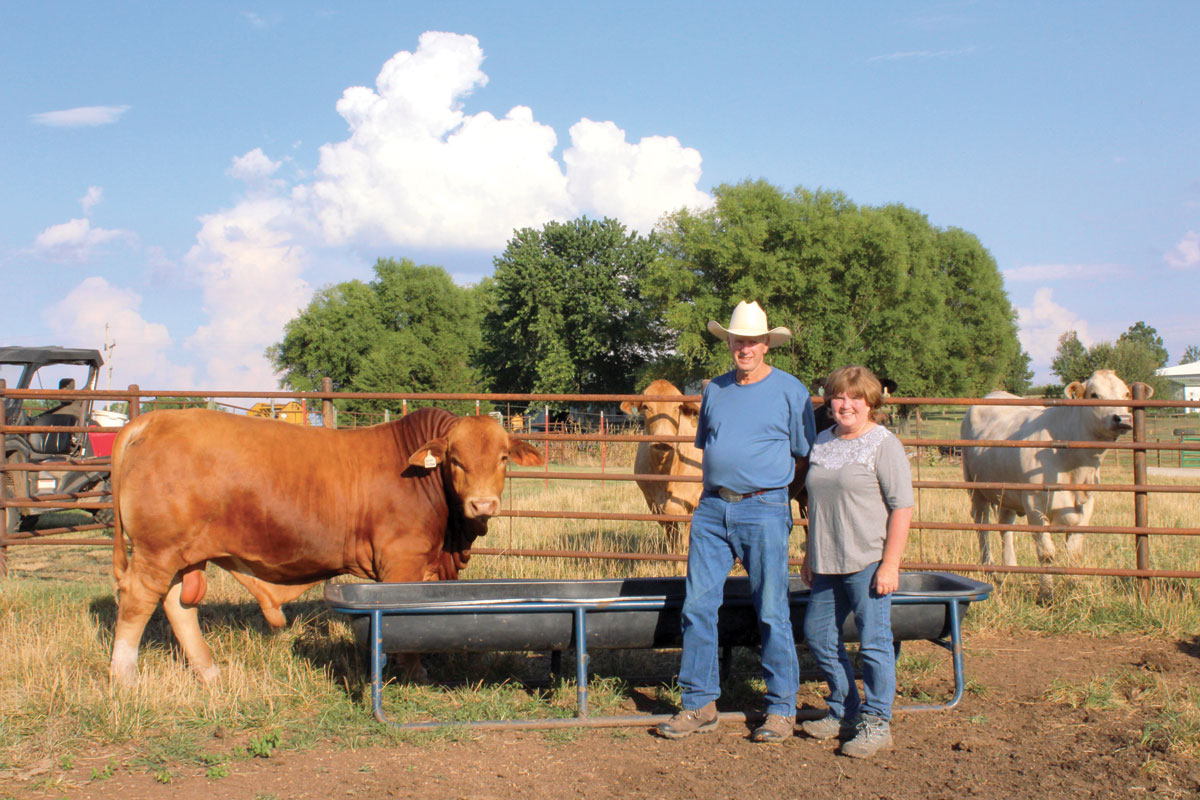
Bob and Adrienne Willett like the ruggedness of their horses and the look of their cattle
Arkansas natives, Bob and Adrienne Willett, D.V.M., have called Greenfield, Mo., home since 1999. When Adrienne took a job in the veterinary industry, the couple moved to Dade County to be more centrally located in her territory.
Bob and Adrienne operate Willett Ranch, which is home to a small herd of Spotted Saddle Horses and Beefmaster cattle.
The couple purchased their first horse in 2010 and have since expanded into breeding and selling horses throughout the United States.
Their horses are bred for rugged trail riding and are double registered Tennessee Walker and Spotted Saddle Horse. They take pride in raising quality trail horses with good minds, strong hips, and are surefooted to endure mountain riding. They want to be safe and comfortable.
“For trail riding, we wouldn’t ride anything else. When we are on the cliff edges and rims, we don’t want anything with a bad mind,” Adrienne said.
Adrienne has encountered people who have the stereotyped gaited horses as being skinny, high headed, high spirited and hard-to-handle. This is far from the type of horses she raises.
“We have a lot of people who see my trail mare and think she is a Quarter Horse or Quarter Horse cross,” Adrienne explained.
The comfortable, faster pace allows the Willetts to experience more scenery without getting saddle sore.
“I don’t get to ride a lot because I travel so much. I can get on a gaited horse and ride four or five hours in a day and really not be sore at all, but if you put me on a Quarter Horse and I did the same thing I wouldn’t be able to move,” Adriene said.
They enjoy traveling the United States with their horses and trail riding. One of their favorite places to ride is at Caney Mountain Horse Camp at Big Flat, Ark., by the Buffalo River. A few other favorites include Big Sky, Montana, Rocky Mountain National Park and Jackson Hole, Wyo.
Beef cattle make up the other half of Willett Ranch. They started their commercial herd 10 years ago and added Beefmasters in 2014. They liked the Beefmaster breed so much they are selling their commercial herd and retaining their registered, F1, and F2 females.
Their F1 females have a commercial dam and are sired by a registered Beefmaster Their F2 females are also sired by a registered Beefmaster sire but their dam is a Beefmaster cross. This crossbreeding technique encourages hybrid vigor in their herd.
“We are using the F1 and F2 in what they call the upgrade program, where you keep breeding them back to Beefmaster bulls until you get registered Beefmasters,” Bob said.
Bob is critical of the females he retains in his herd. One of the first things he evaluates is their docility. If they are wild, they will not make the cut.
“I want a large, double-digit ribeye, high IMF (intramuscular fat), a lot of muscle and to look strong and beefy. They must have a good disposition, be a good milker and a good momma, ” Bob explained.
The Beefmaster cattle at Willett Ranch do not spend their time standing in the pond on a hot, July afternoon. The fescue endophyte and the heat do not seem to have a negative effect on the cattle.
“I like the way they (Beefmaster cattle) look. I like eared cattle, or cattle with some ear. A lot of people think they are crazy, so far we have not had any trouble with them,” Bob said.
They wean their calves around the 205-day mark, at this point they are weighing 600 to 800 pounds. Genetics are an important factor for the Willett’s. They record birth and weaning weights on the calves. All of their heifers are scanned for carcass quality and receive reproductive exams.
“For their age, they are usually pretty heavy. The yearlings we just scanned were double digits,” Adrienne added.
Bob noted that eared cattle tend to get docked at the commercial sale barns so they utilize the commingling marketing option to achieve a premium price.
“If they dock us anything for the ear we make up with on the weight,” Bob said.
The Willetts utilize AI and ET on their ranch as a quick and efficient way to increase genetic quality. Bob does most of the AI himself, but they hire an embryologist for the ET work.
“He’s a real good hand with horses. He is a better hand than I am, even though I went to vet school,” Adrienne smiled.
Bob and Adrienne spent their childhood around livestock. Bob served 11 years in the Air Force and is a retired farrier. Adrienne, formally a small animal veterinarian, works for Idexx Labs in tech services.







